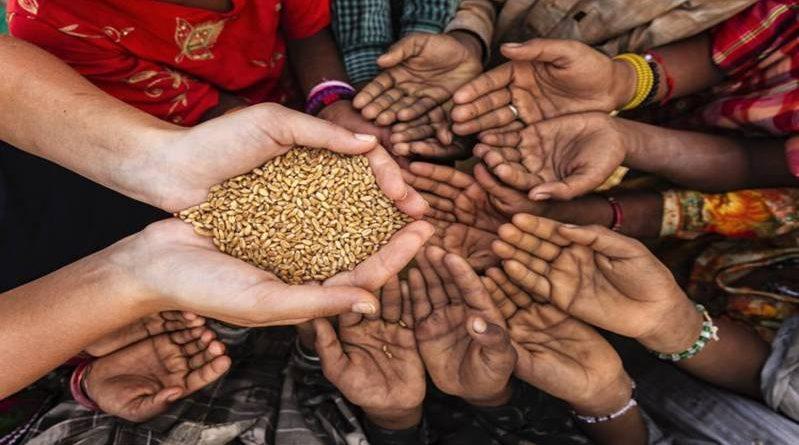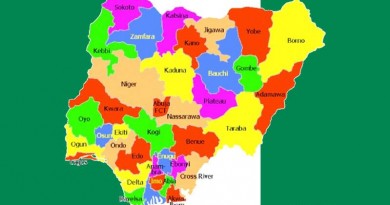26.5 million Nigerians to suffer food insecure in 2024
During the October 2023 Cadre Harmonisé report on food insecurity, the Government of Nigeria and its partners revealed that around 26.5 million people in Nigeria are projected to experience severe food insecurity by 2024.
In addition, almost 9 million kids could experience acute malnourishment or wasting. Out of these, a startling 2.6 million kids may suffer from Severe Acute Malnutrition (SAM) and need life-saving nutrition therapy.
Studies on food and nutrition analysis are carried out biannually (in March and October) in 26 states and the Federal Capital Territory (FCT) by the Cadre Harmonisé initiative. The most recent estimate for 2024, with the backing of the UN system and the government, shows a significant increase from the 18.6 million people who are currently at risk of food insecurity from October to December 2023.
This trend is being driven by a number of factors, such as the continuous conflicts, the effects of climate change, the rate of inflation growing, and the rising prices of food and critical non-food goods (partially because of the devaluation of the naira and the removal of the fuel subsidy). Food access and availability are hampered by the ongoing violence in the northeastern states of Borno, Adamawa, and Yobe (BAY).
Furthermore, the current economic hardships are made worse by armed banditry and kidnappings in northwest and north-central states including Katsina, Sokoto, Kaduna, Benue, and Niger.
During a presentation in Abuja, Dr. Ernest Umakhihe, Permanent Secretary of the Federal Ministry of Agriculture and Food Security, emphasized the importance of the Cadre Harmonisé.
Under the leadership of Director of Special Duties Mrs. Fausat Lawal, Umekhihe emphasized that in spite of government efforts, external obstacles such as the continued COVID-19 repercussions on the world economy and the current Russia-Ukraine war, which upsets food chains, still exist.
3.3 million of the 18.6 million individuals who face food insecurity globally currently reside in the northeastern states of the BAY region. If prompt action is not taken, this number could increase to 4.4 million in the BAY states and 26.5 million nationwide by the height of the 2024 lean season.
While urging the government to extend CH coverage to the remaining 10 states, Dominique Koffy Kouacou, the FAO’s acting representative in Nigeria and to ECOWAS, stated that the organization would keep helping the Nigerian government and people against food insecurity and malnourishment.
According to the Office for the Coordination of Humanitarian Affairs (OCHA), around 8,500 houses in Adamawa were affected by floods in October 2023, which resulted in a large-scale displacement of people, especially women, children, and the elderly. Food security is being further undermined by such extreme weather patterns that are associated with the El Niño phenomena. According to Mr. Trond Jensen, the head of OCHA in Nigeria, “food insecurity and malnutrition are among the main drivers of humanitarian need in the BAY states.”
“In order to survive, people have been compelled to use unhealthy coping strategies including child labor and survival sex. Due to limited farming areas and few or no livelihood options, scores of farmers have perished over the past year, while others have been kidnapped or injured while making ends meet outside the military perimeters of Borno’s garrison towns.
Ms. Cristian Munduate, the Country Representative for UNICEF, stressed the pressing need for action. “Every child deserves proper nutrition and a life free from hunger,” the speaker declared. Ensuring that these rights be respected is not just a responsibility for governments and the international community, but also a moral obligation.”
The WFP’s Country Representative, David Stevenson, emphasized the long-standing problem by saying, “The hunger crisis in Nigeria, which is driven by the ongoing conflict in the northeast, needs urgent attention.
In order to create production routes and realize the northeast’s potential as the nation’s food basket, peace must be restored there.
Since 2018, food insecurity levels in the northeastern states have been steadily high or increasing, according to trend research. Since June 2020, more than 4 million people have required immediate assistance every year.
The UN highlights the urgent need for nationwide support and impels the Nigerian government, donors, and stakeholders to invest funds and put policies in place to prevent a possible food and nutrition catastrophe.




